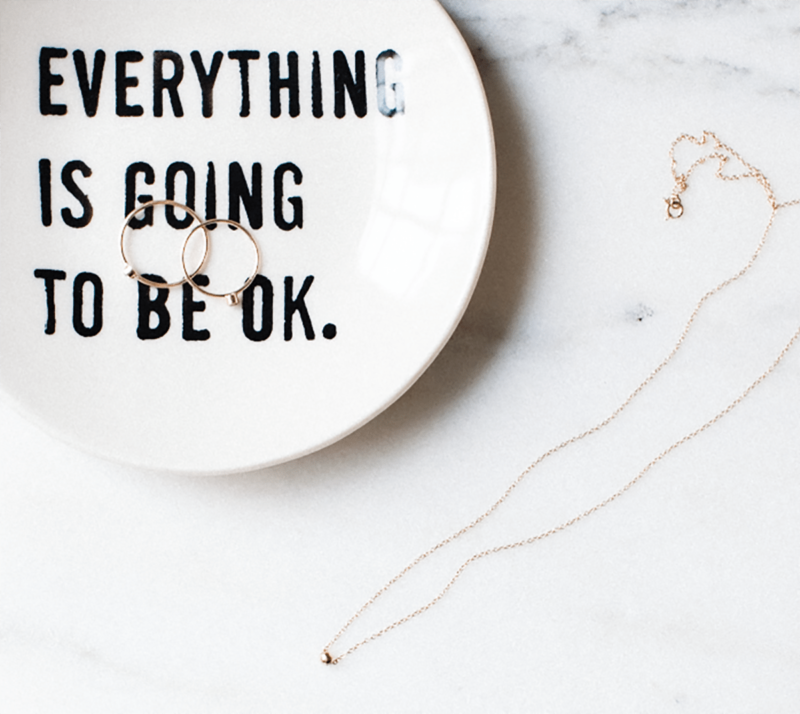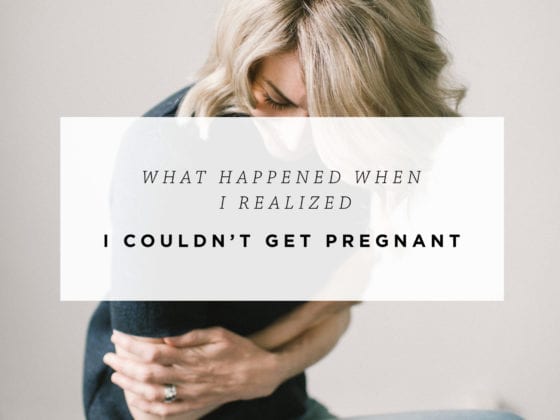We’re still settling into the rhythms of life in our new city, and last week we had dinner with a family that we’re trying to build a relationship with; we go to church with them and our kids are about the same age, so it’s an easy connect.
As our kids ran around one another, I talked with Lesley about life in the last year and a half — all of the transitions that have taken place as we’ve moved cities, changed jobs, and essentially started over in our adult lives. I mentioned that professional counseling has been a game-changer for me in the last season of life, and Lesley paused to ask me more. She had recently been considering counseling but wasn’t sure if she should pursue it, or if it would be a good fit for her. Here’s what I shared with Lesley that night — the three ways that counseling was one of the best gifts I’ve ever given myself:
1. Counseling helps us to walk the journey of health and wholeness intentionally.
Most of us long to live in healthy, empowering ways in our daily lives; we want to respond to ourselves and others with kindness, and we want to live from a place of love rather than fear. But there are very few practical ways to determine if we are actually growing in wholeness and personal wellbeing. There’s not a to-do list that we can check off at the end of every day. Rather, the journey to healing and health is one that will take a lifetime of intentionality. Committing to counseling sets at least one clear step before us on the path to wholeness, and it offers us tools for not only coping with, but thriving in our daily lives.
2. Counseling helps us to own our brokenness and our glory.
A good counselor — one who is seeking to help us rather than trying to appease us — is a person who will speak truth. And when that truth is about our brokenness and the ways we have failed, it can be hard to hear. But it is necessary for us to come to terms with the brokenness that we carry so that we can better understand how we respond when confronted with pain and anger and fear. We need to hear the hard truth so that we can forgive and change and grow. And the good news is that as we better understand our brokenness, we can better understand our glory, too. For we are not solely broken; we are those who are choosing to try again, to ask for forgiveness again, to show up again. We have more strength than we know, and more resilience than we might have imagined. These are gifts that a good counselor helps us to see in ourselves.
We have more strength than we know, and more resilience than we might have imagined.

3. Counseling helps us to take ourselves seriously.
Talking to friends about our struggles and our triumphs is immensely important — and can never be replaced. But something changes when we decide to invest in our mental and spiritual health by paying a professional to help us wade through our questions and our issues: we take the process seriously. We aren’t looking for relational communion with a counselor — we’re looking for growth and change. And making appointments and paying for that helps flip a switch in most of us. It helps us to see that this is important, meaningful work we are doing in that hour every week — work that we want to invest in and work that we hope will yield good fruit in our hearts and minds. When we decide to see a counselor, we are in effect stating: it is worth it to invest in myself and pursue healing. This is valuable, important work, because I am valuable and important. There aren’t many better gifts we can give ourselves.
If you’re not sure where to find a good counselor, the best place to start is to reach out to a friend who receives counseling and ask if she would recommend her counselor to you. If you don’t know anyone who is already being counseled, you can also search for well-rated counselors online who are near your zip code. However, with any potential counselor you are considering, make sure that he or she has the necessary credentials: either a Psy.D or Ph.D with an LPC (licensed professional counselor), or an M.A. with an LPC. This means that the counselor has completed advanced training in psychology, and that they have been licensed by your home state to practice professionally.
When we decide to see a counselor, we are in effect stating: it is worth it to invest in myself and pursue healing.
All of this comes with the caveat that it may take some time to find a counselor who fits you well — one who you trust and who is in line with your worldview. As a Christian, it was important for me to find a counselor who understood my faith and could speak to me out of that shared faith; make sure to find a counselor who understands and respects your values, as well.
No matter your season of life or the struggles before or behind you, the partnership of an insightful, truth-telling counselor can be a grace and a gift.
Could counseling be a next step for you?
Images via Michelle Madsen by Benjamin Ewing












10 comments
I’m curious to know if Biblical Counselors were left out of the list of recommendations for any particular reason? As I understand a Masters Degree is required to be a Biblical Counselor.
Boom shalkaaka boom boom, problem solved.
Isn’t counseling really expensive though? I mean, I won’t even get treatment for physical injuries like sprains because it’s so expensive, let alone pay hundreds for counseling. There have been times when I have been wracked with anxiety and felt like counseling could be a good idea, like the article is probably right, but it’s always felt like I’m either going to save myself or self-destruct because the cost makes it a non-option.
Great article.
I grew up viewing counseling through a very stigmatized lens; yet, present years, circumstances, and interactions with friends have opened up my eyes to the value of counseling. I definitely now see it as an open door to healing, a means to bring about wholeness, rather than something to be ashamed of.
Thank you Ann, for such a great reminder!
Beautifully, powerfully written–thank you!
LMFTs (licensed marriage and family therapists) are also highly trained mental health professionals. LMFTs focus on the dynamics between people and specialize in repairing and enriching relationships. If your concerns are relational, the AAMFT Therapist Locator can help you find an experienced relational therapist.
This is a great thing to be sharing. I’ve been in counselling three times in my life. I’m also planning to go back to it when university starts up again. Every time I’ve been to counselling, it has helped me in different ways. I’ve take so much out of every meeting I’ve had, and I’m always learning new things about myself. I believe that going to counselling allows you to celebrate yourself.
This is a great thing to be sharing. I’ve been in counselling three times in my life. I’m also planning to go back to it when university starts up again.
Thank you for talking about this!
I wanted to add that a counselor/therapist with an LCSW (licensed clinical social worker) is a high-level credentialed clinician with many years of training.
I also want to add that while it is absolutely important to find a counselor with whom you connect and “fit,” it is not necessarily important that you share the same personal values – in fact, you shouldn’t truly know your therapist’s values. This is because a good therapist will remain neutral in regards to her own values and help you to define and live by yours.
Counseling has helped me connect the dots from my past to my present and envision a future I hadn’t seen as possible before. Through counseling I have a better sense of who I am and have grown in ways I don’t think would have been possible without the help of a counselor. I highly recommend it to anyone! Even if you don’t think you have something major going on and “need” it. We all have struggles and we all can keep growing! Great article, Ann!
As a counselor who has been in counseling myself since college I cannot agree more Ann! Thank you for writing this & freeing up women to delve into their own narratives & break into freedom!